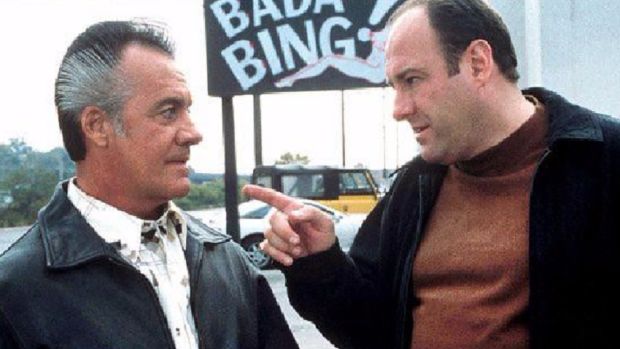Happy Thursday all. A big shout out to our Victorian readers, who suddenly find themselves masking up again indoors. 40-15.
Today’s column might take 120 seconds, but there’s lots of juicy stuff to talk about.
1. BrexNPL?
There could be a day of reckoning coming for the wild west of BNPLs, in the UK at least, with British regulator, the Financial Conduct Authority (FCA) saying oversight was needed urgently as it watched the use of Clearpay, Afterpay’s UK brand, rise by 400%, with around 5 million Brits putting nearly $5 billion (£2.7bn) on their tabs.
Christopher Woolard’s review for the FCA into unsecured lending concluded that “Changes are urgently needed: to bring BNPL into regulation to protect consumers; to ensure that there is secure provision of debt advice to help all those who may need it; and to maintain a sustained regulatory response to the pandemic.”
BNPL products, currently exempt from regulation, could cause “significant potential for consumer harm” and should be brought within the regulatory perimeter as a matter of urgency, the Woolard review says amid 26 recommendations, including forcing the BNPLs to conduct affordability checks before lending to customers.
A key driver of Afterpay’s success is that, much like Uber in its early days of taking on a heavily regulated taxi industry, it doesn’t bother with the costly and time-consuming credit checks every other financial institution has to conduct before offering credit.
The report notes that more than one in 10 customers of a major bank using BNPL were already in arrears.
FCA chair Charles Randell, Chair said in response: “The FCA agrees that there is a strong and pressing case to bring buy-now pay-later business into regulation.”
If you’re excited by UK financial regulation, you can read the 68-page Woolard review here.
2. Musk rat
Tesla boss Elon Musk has confessed something Holden – and even Sir James Dyson discovered – has known for a very long time: making mass-production cars is “hell”.
In a YouTube chat with car expert Sandy Munro, the world’s richest man confessed that some of the cars Tesla produced were a long way from perfect, including the Model 3, with Musk conceding that Munro’s criticisms of the vehicle – which sent Tesla fans into screaming rages – “were accurate”.
The surprisingly candid CEO said: “it’s super hard to be in vertical climb mode and get everything right on the little details … it’s just a super-difficult thing”. Among the problems they uncovered was the paint on the cars not having long enough to dry as production speeds ramped up.
“Reaching volume production with a reliable product at an affordable price is excruciatingly difficult,” Musk said.
But Munro, who has a reputation as a bit of a pitbull in his reviews is a Tesla fan, especially when it comes to the next-gen self-driving tech.
“This will save more lives than airbags, seatbelts and anything else that anybody else has ever [invented],” he said.
Watch their 48-minute exchange here.
3. Alphabet souped
Google’s parent company, Alphabet, announced its Q4 earnings, generating revenues of US$56.9 billion, up 23% year-on-year, to beat Wall Street expectations by more than $3.5bn. Traffic acquisition costs were $10.47bn.
Google Search’s contribution for the quarter was US$31.9bn. Advertising revenue for Q4 was $46.20bn, up 22% YoY.
Net income was US$15.227bn for earnings per share of $22.03
Of interest, Google Cloud is now reported separately and delivered US$3.83 billion in revenue in Q4, with a $1.24bn an operating loss. Cloud’s annual revenue for 2020 was US$13.06bn with an operating loss of $5.6bn.
YouTube ads revenue was US$6.9bn, smashing market expectations by more than 10% ($6.22bn) and up 46% on 12 months ago.
Alphabet’s “Other bets” (yes that’s what they call them on the earnings statement) such as Verily and Waymo delivered US$196 million in revenue for an operating loss of $US1.14 billion.
4. Bing besties
Like the Kings of Westeros coming to see Joffrey on the Iron Throne, so have global tech leaders paid homage to Australian Prime Minister Scott Morrison in recent weeks in order to avoid a Red Wedding over the News Media Bargaining Code.
This morning, global Google boss Sundar Pichai had a chat with the PM in the wake of his company threatening to pull its search engine from Australia if the code becomes law. Morrison told reporters following the discussions that: “They understand that Australia sets the rules for how these things operate.”
Facebook founder Mark Zuckerberg, whose social media venture has threatened to remove news articles from its platform if the laws proceed, also had a chinwag with ScoMo in recent days.
But best on ground goes to Microsoft, with president Brad Smith and CEO Satya Nadella chatting to the PM and minister and then announcing yesterday that they were supporting the code rival Google hates.
“The code reasonably attempts to address the bargaining power imbalance between digital platforms and Australian news businesses,” Smith wrote in an open letter, adding that while it doesn’t currently cover his Microsoft “we’d be willing to live by these rules if the government designates us”.
If Google carries through on its threat, then Bing, the Microsoft-owned search engine stands to be a big winner.
“One thing is clear: while other tech companies may sometimes threaten to leave Australia, Microsoft will never make such a threat,” Smith’s letter says.
“We appreciate what Australia has long meant for Microsoft’s growth as a company, and we are committed to supporting the country’s national security and economic success.”
Tweet of the Day:
If I was going to grow up, I would have done so by now. What should I call the new home wifi network?
— alan jones (the good one) (@bigyahu) February 4, 2021




















Trending
Daily startup news and insights, delivered to your inbox.